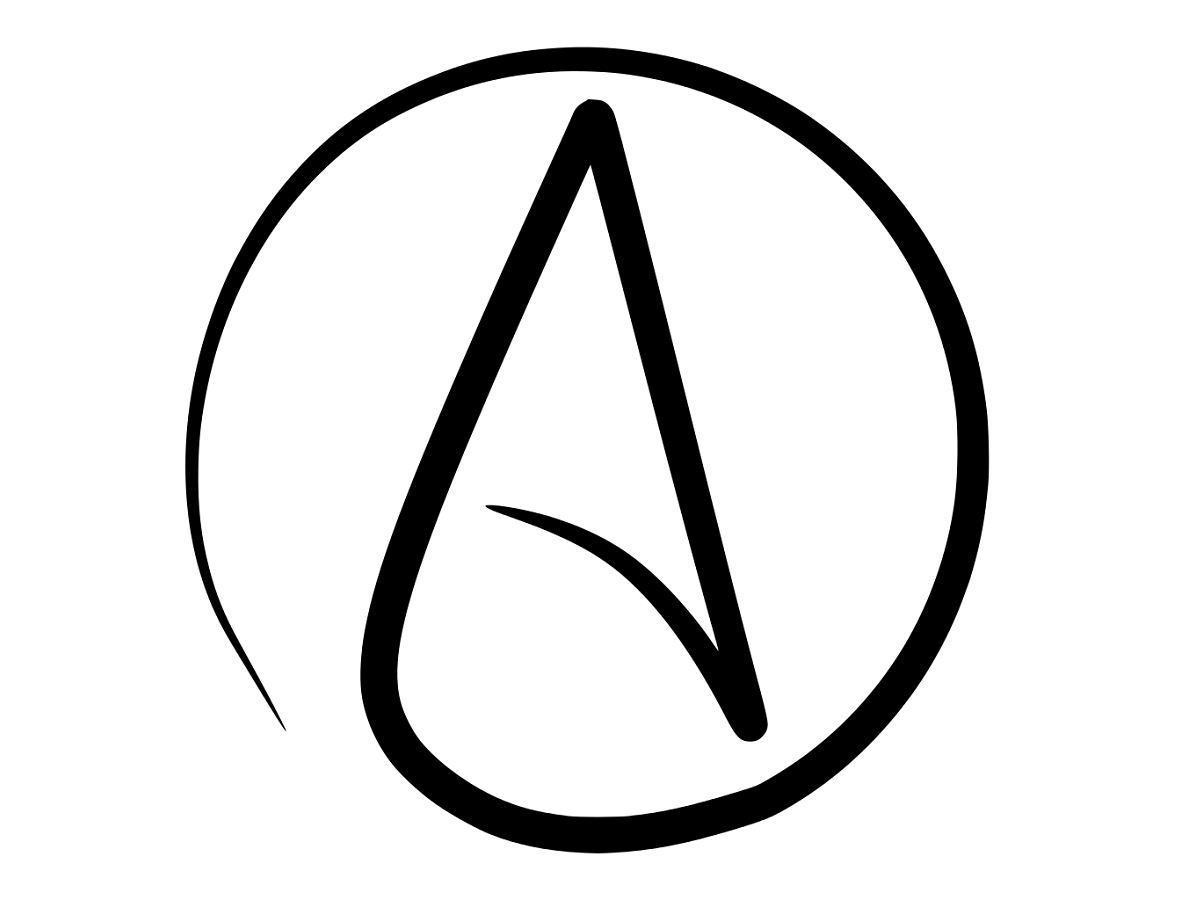Atheism

Atheism is distinct from Pantheism, even though some philosophers have tried to claim otherwise.
Atheism Versus Pantheism
Atheists tend to agree with fundamentalists in that the literal interpretation of scripture is assumed. Atheists reject the possibility that religion is based on allegory because that would not allow for the superficial spurning of the supernatural and smug sense of self-satisfaction that it brings.
Since Pantheism and most theology agree that scripture is allegory, it is atheists that set themselves apart in there adherence to literalism. The line of demarcation is between literalism and allegory, not between materialism and the supernatural.
While atheists on social media have gone a long way to move the overton window regarding discussions of religion, their point of view is inherently contrarian and therefore not a philosophy that can be positively ascribed to.
Asexuality Versus Pansexuality
Consider Asexuality versus Pansexuality. No offence to the Ace community, but which one sounds more fun? If you are inclined towards sex at all, it is much better to indulge your passions (in moderation!) than to abstain from them. It is the same with spirituality. Most people have an innate desire to seek spirituality just like they do with sex. Atheists abstain from all forms, while Pantheists can pick and choose among the many religions, rituals, and traditions that have existed over the centuries. Many of these beliefs are quite interesting, can reveal truth when interpreted as allegory, and offer useful rituals that can enhance mindfulness or elicit the placebo effect. Pantheism is more fun, and satisfies primal desires that abstinence cannot.
Coalition Building
Atheism can never build coalitions with religious institutions due to the inherent denial of their core belief system that atheism presents. It is fundamentally incompatible with religion, and any movement for progress that is organized around atheism, or even loosely associated with it like progressives are, will be unable to draw support from the religious community that still forms the vast majority of the human population.
The formation of the universal in-group would be impossible if denial of religion and spirituality are part of it. If the conflict is between god versus not god, there will eventually be war. If it's between a magic god and a universe god, a peaceful transition towards cooperation is possible.
Denial Versus Definition
It's the difference between denial and definition. Atheism denies god, which really annoys believers of all stripes. Pantheism provides an alternative definition for god that is only a real problem for literalists. Most people don't even have a theological definition of god in their minds, only a vague amalgam of images, stories, and archetypes. They can often readily accept a definition that makes sense, has theological and historical roots, resolves the conflict between science and religion and the cognitive dissonance that it causes, and doesn't fundamentally deny their core identity.
Why Would Anyone Choose Atheism?
Both the pantheistic definition and the atheistic denial lead to the conclusion that science and reason should be our primary source of truth. So why choose atheism over pantheism other than clinging to literalism and the supernatural definition of god? Why choose the option that is blatantly counterproductive to realizing your cultural and political aspirations? Why choose the less fun option? Why choose the option that disconnects you from the vast majority of humanity, both living and ancestral?
Do you want to be right or do you want to be happy? With pantheism you can be both.